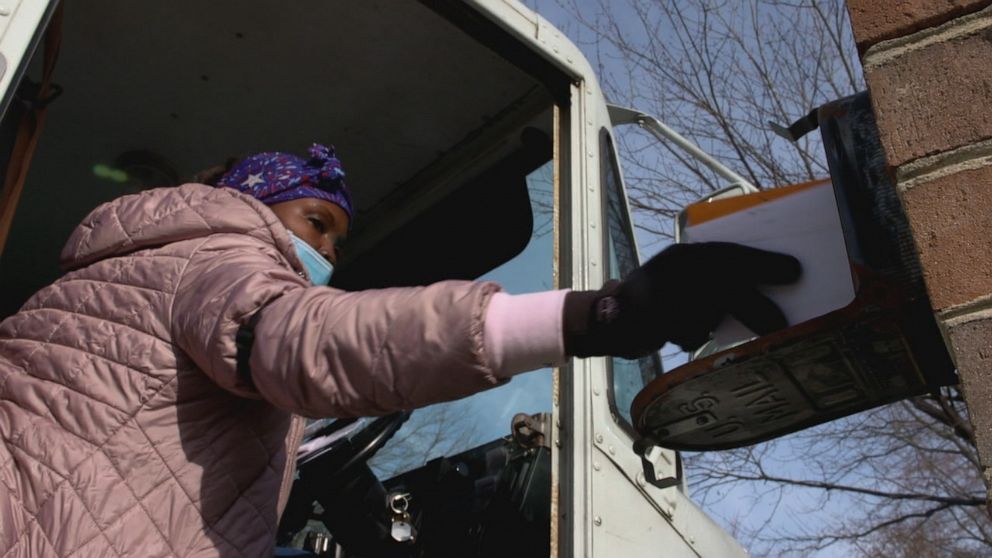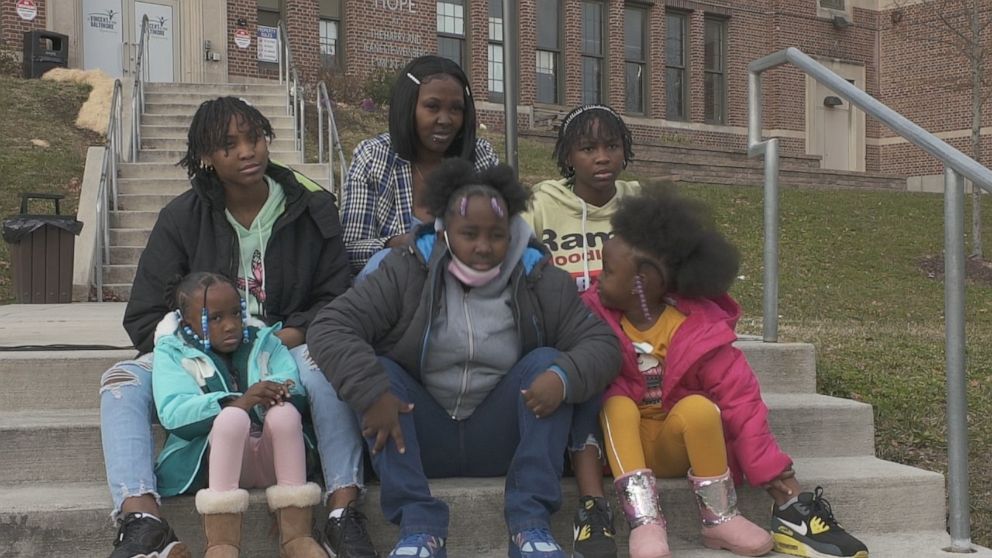Woman’s journey through homelessness, unemployment shows struggle single mothers face in pandemic
“Sometimes you have to go through things to get stronger.”
Every morning, Alisha Carter, 35, wakes up to the noise surrounding her West Baltimore neighborhood. From police sirens, gunshots and to the sounds of ambulances going up driving through the city, Baltimore is the only place she has ever called home.
But since the start of the pandemic, Carter -- a full-time postal worker in her professional life and a mother of five daughters in her personal one -- has dealt with losing her home, living in a hotel and having to move into a homeless shelter.
“I had several good jobs, you know, but during this time, I just kept working and not giving up,” Carter said. “To have a job, a good job at that and still be homeless was like, what am I doing wrong? Got a career, but you're homeless.”

Before the pandemic, Carter rented a row home and worked as a full-time bus driver when the homeowners advised Carter that someone purchased the home, which led Carter and her girls to have to leave and find a new place to stay.
They eventually settled in a hotel but Carter subsequently lost her job as a bus driver due to school closings from COVID-19, leaving her unemployed and with no funds to provide for her family.
With no place to go, she and her daughters lived out of a car for about two weeks before, eventually, through the help of a friend, contacting Sarah’s Hope, a homeless shelter in Baltimore that caters to single mothers and their children.
“Sometimes you have to go through things to get stronger,” Carter said. “I always felt like people that had stuff handed to them, they don't value it, so, when you go through a struggle together with your family, it makes you stronger.”

According to the United States Census Bureau, there are currently 13.6 million single parents in the U.S., raising 22.4 million children and 80% of those single parents are moms.
The state of Maryland as a whole has seen eye-opening numbers in regards to single mothers, with African American mothers being the ones who suffer the most. Data shows that, since the pandemic began, homelessness in Maryland has increased with experts saying single mothers and people of color are being hurt the most.
For those who need stable housing, the Women’s Housing Coalition reported that there are only three available units for every 10 families in Maryland who need them.
“You have to look at even prior to the pandemic, the resources were scarce for people of color,” said Leroy Fowlke, Program Director of Sarah Hope, the Baltimore shelter that housed Carter and her daughters. “As far as employment training opportunities, the communities themselves are not really conducive to growth in many situations. There's so many obstacles to overcome, to get connected to what you need. So I really think the pandemic just kind of escalated that situation because now the resources are even more scarce.”
But even with all the odds against her, Carter remained headstrong and kept her faith close to her heart.
While at the homeless shelter, she managed to secure a job as a postal worker and through hard work, saving as well as the help of Sarah’s Hope, Carter and her five daughters recently moved into a new home that they can finally call home again, something that she says has brought a light to her life again.
“Every dark place always has a light, something that just brings light,” Carter said. “Don't underestimate yourself.”




